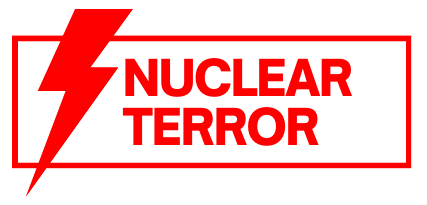Are you ready to unravel the mystery surrounding South Sudan’s nuclear power status? As we delve into this complex topic, we will explore the country’s nuclear weapons stance, its efforts to universalize non-proliferation measures, and its position as a nuclear-weapon-free state. But that’s not all – we’ll also delve into South Sudan’s partnership with the International Campaign to Abolish Nuclear Weapons (ICAN), its role within the African Group, and recommendations for the nation. With so much to uncover, you won’t want to miss the intriguing details that lie ahead.
South Sudan’s Nuclear Weapons Stance
South Sudan’s stance on nuclear weapons remains unclear as it has not signed or ratified the Treaty on the Prohibition of Nuclear Weapons (TPNW) and did not participate in its negotiation or adoption. This raises questions about South Sudan’s nuclear policy and its commitment to nuclear disarmament efforts. Non-proliferation commitments are an important aspect of South Sudan’s role in regional security and international cooperation on nuclear issues.
By not joining the TPNW, South Sudan limits its influence on nuclear disarmament discussions and its ability to shape the treaty’s provisions. The decision not to join the TPNW also raises concerns about South Sudan’s stance on nuclear weapons and disarmament. It may impact its relationships with other states and international organizations.
However, South Sudan has shown some support for nuclear disarmament. It has promoted universal adherence to the TPNW and voted in favor of a UN General Assembly resolution calling for states to sign, ratify, or accede to the treaty. South Sudan’s commitment to nuclear disarmament is reflected in its voting patterns in the UN General Assembly.
To enhance its regional and international standing, South Sudan should consider joining the TPNW as a nuclear-weapon-free state. This would demonstrate its commitment to nuclear disarmament and contribute to regional and global efforts towards a world free of nuclear weapons.
Universalization Efforts and Impact
To further explore the topic of South Sudan’s stance on nuclear weapons and its impact, let’s now shift our focus to the universalization efforts and the potential consequences of its non-participation in the Treaty on the Prohibition of Nuclear Weapons (TPNW). South Sudan’s non-participation in the TPNW has several consequences. Firstly, it limits South Sudan’s influence on nuclear disarmament discussions. By not being part of the treaty, South Sudan is unable to actively shape its provisions and contribute to global efforts towards nuclear disarmament. Additionally, South Sudan’s decision not to join the TPNW raises questions about its stance on nuclear weapons and disarmament, potentially impacting its relationships with other states and international organizations. Furthermore, South Sudan’s absence from the treaty may hinder regional disarmament efforts as it fails to set a positive example for other countries in the region. Participating in the TPNW would not only enhance South Sudan’s regional and international standing but also contribute to the collective goal of achieving a world free of nuclear weapons.
Nuclear-Weapon-Free State Status
Achieving nuclear-weapon-free state status is an important goal for South Sudan in its pursuit of nuclear disarmament and non-proliferation. By becoming a nuclear-weapon-free state, South Sudan can benefit from several advantages and contribute to global efforts towards disarmament.
Advantages of nuclear-weapon-free state status for South Sudan include:
- Enhanced regional and international standing: South Sudan’s commitment to disarmament can improve its reputation and influence in the global community.
- Strengthened non-proliferation commitment: By renouncing nuclear weapons, South Sudan demonstrates its dedication to preventing the spread of nuclear weapons to other countries.
- Regional cooperation: South Sudan’s status as a nuclear-weapon-free state could facilitate collaboration with neighboring countries in establishing a nuclear-weapon-free zone in the region.
- Nuclear weapon free zone: Joining other nuclear-weapon-free states in a designated zone can contribute to regional stability and security, fostering peaceful relations among states.
Partnership With ICAN
The partnership between South Sudan and ICAN (International Campaign to Abolish Nuclear Weapons) plays a crucial role in advocating for nuclear disarmament and raising awareness about the humanitarian consequences of nuclear weapons. Through their collaboration, the South Sudan Action Network on Small Arms actively engages in nuclear disarmament advocacy and supports ICAN’s efforts to promote the prohibition of small arms. This partnership contributes to ICAN’s global campaign for nuclear disarmament, highlighting the need to eliminate the devastating impact of nuclear weapons on humanity.
By joining forces with ICAN, South Sudan is able to amplify its voice and influence in the international community, as ICAN is a renowned organization dedicated to the abolition of nuclear weapons. Through joint initiatives and campaigns, South Sudan and ICAN work together to raise awareness about the humanitarian consequences of nuclear weapons, emphasizing the need for their prohibition.
The partnership also allows South Sudan to benefit from ICAN’s expertise and resources in advocating for nuclear disarmament. By collaborating with ICAN, South Sudan can leverage the organization’s global network and knowledge base to further its efforts in promoting nuclear disarmament and building a safer world. This partnership serves as a platform for South Sudan to actively contribute to the global discourse on nuclear weapons and to advocate for their elimination, thus ensuring a more secure and peaceful future for all.
South Sudan’s Position Within the African Group
Within the African Group, South Sudan is actively engaged in promoting the Treaty on the Prohibition of Nuclear Weapons (TPNW) and advocating for its universal adoption. South Sudan’s position within the African Group is of significant importance in the context of nuclear disarmament and non-proliferation efforts. Here are key aspects of South Sudan’s position within the African Group:
- African Group’s support: South Sudan benefits from the collective support of the African Group, which has consistently expressed its endorsement for the Treaty on the Prohibition of Nuclear Weapons. This support reinforces South Sudan’s stance on nuclear disarmament and strengthens its position within the group.
- Total elimination: South Sudan aligns itself with the African Group’s commitment to the total elimination of nuclear weapons. This shared objective underscores South Sudan’s determination to contribute to global efforts aimed at achieving a world free from the threat of nuclear weapons.
- International Day: The African Group, including South Sudan, actively commemorates the International Day for the Total Elimination of Nuclear Weapons on September 26th each year. This observance highlights South Sudan’s commitment to raising awareness about the importance of nuclear disarmament.
- Adherence to treaties: South Sudan’s active engagement within the African Group reinforces its commitment to adhering to international treaties and agreements related to nuclear disarmament. This commitment bolsters South Sudan’s credibility and strengthens its position within the African Group.
South Sudan’s voting behavior within the African Group reflects its evolving stance on nuclear disarmament. As South Sudan continues to actively promote the Treaty on the Prohibition of Nuclear Weapons and advocate for its universal adoption, its position within the African Group becomes increasingly influential in shaping regional and global efforts towards nuclear disarmament.
Recommendations for South Sudan
To enhance its nuclear disarmament efforts and strengthen its position within the international community, South Sudan should prioritize the urgent adherence to the Treaty on the Prohibition of Nuclear Weapons (TPNW). In addition to joining the TPNW, South Sudan should conclude and bring into force a Comprehensive Safeguards Agreement and an Additional Protocol with the International Atomic Energy Agency (IAEA). This would ensure that South Sudan’s nuclear activities are subject to rigorous inspections and verification measures, strengthening its commitment to nuclear non-proliferation.
Furthermore, South Sudan should consider engaging with the International Campaign to Abolish Nuclear Weapons (ICAN). By partnering with ICAN, South Sudan can contribute to the global campaign for nuclear disarmament and raise awareness about the humanitarian consequences of nuclear weapons. This collaboration would further enhance South Sudan’s position as a proponent of nuclear disarmament.
To effectively engage in nuclear disarmament discussions, South Sudan should update its state profile regarding nuclear weapons. This will provide a comprehensive and accurate overview of its nuclear capabilities, intentions, and disarmament efforts. By doing so, South Sudan can demonstrate its commitment to transparency and accountability in the field of nuclear disarmament.
Lastly, South Sudan’s voting behavior in the UN General Assembly reflects its evolving stance on nuclear disarmament. It is essential for South Sudan to continue supporting the TPNW through consistent voting in favor of resolutions that promote nuclear disarmament. This will reinforce South Sudan’s commitment to a world free of nuclear weapons and strengthen its position within the international community.


